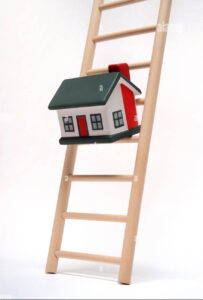The Role of Government in the Housing Market: The Experiences from Asia
Introduction:
Housing touches everyone’s heart. It has been the long-term focus in urban development, social and economic policy. In the past several decades, some countries have made tremendous progress in meeting the housing needs of their nations, while others still face great challenges of severe housing shortage, substandard housing and slums. Today about one third of the total urban population live in slums. In some developing countries, the majority of urban population live in poor conditions. For a long period, the housing issues in developing countries have only received marginal interest in the academic community and political arena. The political and public concern with the housing conditions of the developing world is a relatively recent phenomenon.

Restructuring of the home ownership system in Japan:
The home ownership system in Japan has been playing a key role in stabilizing society and the economy. After the end of the Second World War, the macro economy grew at a great rate, generated an increase in the middle class and promoted their acquisition of housing. Mass construction of owner-occupied housing was considered an engine to stimulate economic growth. To own housing was accompanied by a capital gain and was an effective means of acquiring an asset since land and housing prices were continuously and rapidly rising. That middle-class people, obtaining their own housing and accumulating an asset, were regarded as contributing towards social stability.
Home Ownership System in the Post-War Period:
Japan achieved amazing economic development after the Second World War. During the period from 1955 to 1973, when the oil crisis occurred, the average GDP growth was as high as 10 per cent. Immediately after the oil crisis, the economy began to grow again. The growth of the Japanese economy continued at a high level until the burst of the ‘bubble economy’.
Deteriorating Economic Conditions for Home Ownership:
Housing prices have been continuously falling for the last decade. Owner-occupied housing, which, without exception, used to generate a capital gain, has begun to create a capital loss. A household who became a house-owner during the bubble period is now suffering from serious asset deflation just because the time of housing acquisition was not good.
There are two main reasons for the drop in the marketability of second-hand condominiums. First, a large quantity of new condominiums was built in big cities in the 1990s. A combination of factors such as the decrease in housing prices, a continual low interest rate and the improvement of the HLC’s loan conditions encouraged people to buy a newly-built condominium unit. As the housing market of new condominiums expanded, the price of second-hand ones went down.
Decline in the Housing Market Ladder System:

A ‘housing ladder system’ has been encouraging households to move from a rental house to an owner-occupied house and from a condominium to a single-family home. This envisaged the following: when a family is young, they may rent a house of poor quality as their income is low; as the family matures, their income increases and they can move to a better house; and in the end, the family should be able to purchase a house, and once they own a house, it means they can make a capital gain which enables them to move from a small house to a larger house. Single-family housing was located at the top of the ladder and regarded as the ‘Japanese dream’.
Marketisation of Home Ownership:
The state played a leading role in the construction of a housing market system in the postwar period in Japan. Housing Policy by the national government formed a framework to build a relationship between the central role of home ownership, economic growth through housing construction and an increase in the middle-class. The present government, however, began to retreat from housing policy and to promote the marketisation of housing.
Conclusion:
Home ownership in the post-war period has been going in a definite direction for both individuals and society. Mass construction of owner-occupied housing was considered to stimulate economic growth and to stabilize society. Many people were ensured of employment, had a family, participated in the housing ladder system and aimed at obtaining a house. Possessing a house generated a capital gain and promoted asset accumulation for the owner. Home ownership was not only defined in a material sense, but also as a place for the family, a keystone of a life plan and a middle class symbol.
Also Read: Dissemination of Low-cost Building Materials and Technology in Kenya
